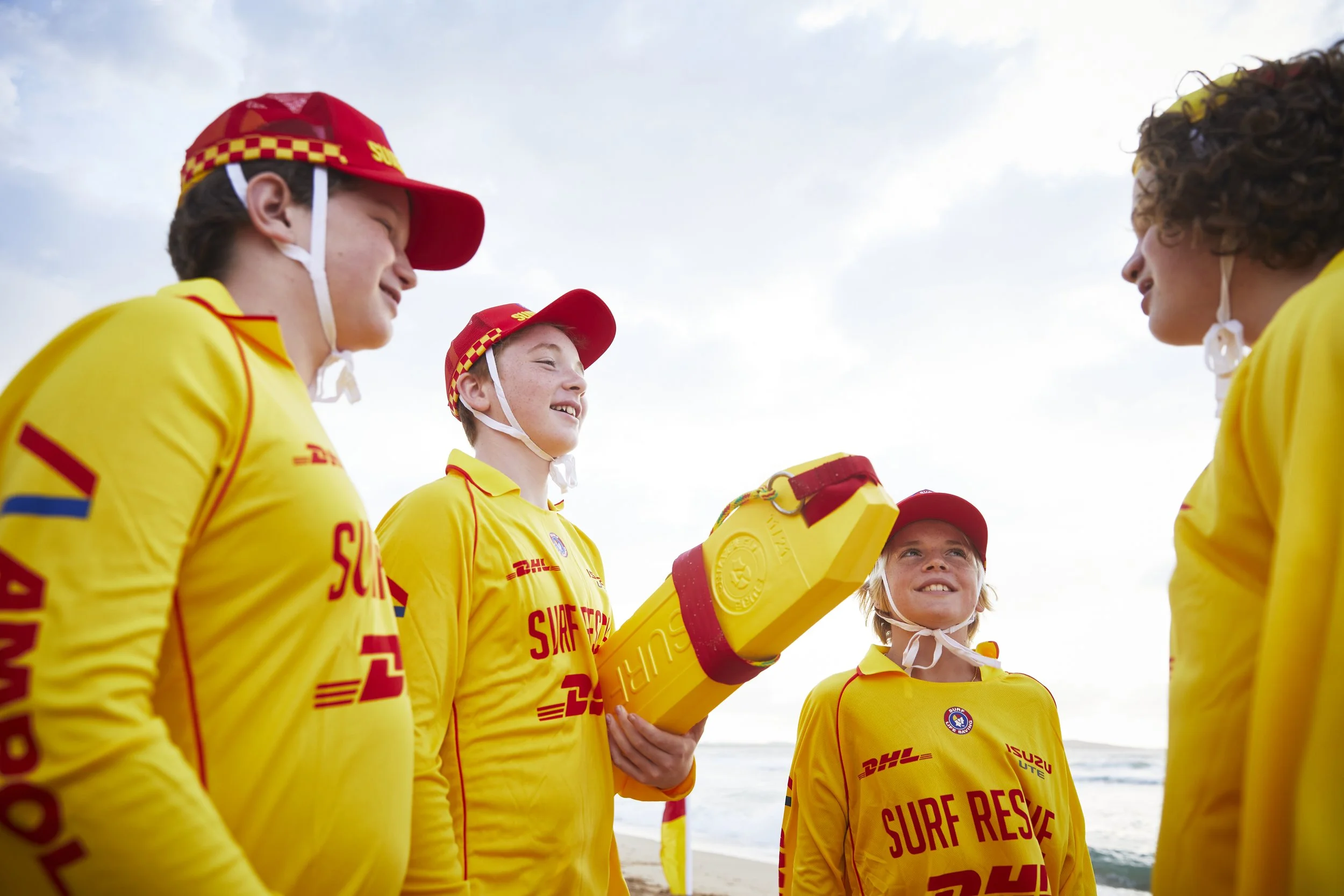
TAKING CARE OF YOURSELF
Taking care of our health and well-being is crucial. It helps us take care of our families, do well at work or school, volunteer, and stay involved in the things we enjoy. Unfortunately, it is a reality that during our time volunteering along our beaches, many lifesavers may encounter critical incidents or be exposed to stress or potentially traumatic events that could affect them.
Maintaining our health and well-being requires us to recognise the signs of stress and trauma, so we can respond appropriately and return to normal functioning. If you feel very distressed or your reactions are interfering with your work and relationships, please talk to your doctor at any time.
This page provides information to help you care for yourself - and other Club members - by remembering the S.U.R.F acronym:
SPOT the signs and symptoms.
USE strategies to respond to the signs by taking appropriate measures for yourself or your Club mates.
RELAX and practice self-care techniques.
FIND professional support. Refer the situation to a more qualified individual or authority for further assistance.
By following these steps, we can ensure that we are able to continue our vital work as lifesavers while maintaining our own health and wellbeing.
Spot the Signs and Symptoms
There is no one-size-fits-all approach to coping with trauma; each person has a unique way of recovering. Reactions to trauma are normal, and many individuals will return to normal functioning in the weeks following an incident without professional help.
However, it is important to recognize these reactions early to manage them effectively. How do we recognise reactions after a rescue or potentially traumatic incident?
The latest evidence suggests that our reactions typically fall into four categories: Behavioural, Cognitive, Emotional, and Physical.
-
Symptoms may include:
• Reduced concentration
• Difficulty making decisions
• Forgetfulness
• Inability to think clearly
• Distressing dreams or flashbacks
-
Symptoms may include:
• Reduced concentration
• Difficulty making decisions
• Forgetfulness
• Inability to think clearly
• Intrusive thoughts, including distressing dreams or flashbacks
-
Symptoms may include feelings of:
• Anger, Anxiety
• Depression, Fear
• Grief, Guilt
• Hopelessness, Isolation
• Loss of confidence
• Shock
-
Symptoms may include:
• Change in sleeping habits
• Fatigue
• Headaches
• Muscle aches
• Nausea, vomiting or upset stomach
• Rapid heart rate
Use Strategies To Respond
Firstly, it’s important to accept that a range of reactions is a normal part of the process in the weeks following a potentially traumatic incident or when dealing with challenging issues. Recognising and acknowledging these reactions is the first step toward effective coping.
Talking to a trusted person is one of the best ways to respond. Even if you feel that you are on your own, there are options available to you right in front of you:
• Patrol Captain / Club Captain
• Friends and family
• SLSSA Lifesaving Team (8354 6900)
These individuals are here to support you through difficult times and provide guidance on how to navigate the challenges you may be facing.
How can you respond and help other Club members?
• Speak to the person and tell them that you are worried about them.
• Encourage them to talk to someone they trust, whether it’s you or another trusted individual.
• Reassure them that their feelings are valid and that it’s normal to take time to recover from difficult situations.
• Extend a helping hand by offering practical assistance, such as helping out around their home, meal preparation, or any other tasks that may alleviate their burden during this stressful period.
• Remember, you don’t need to fix their problems, as it might not be possible. Just being there to listen can make a big difference.
Relax and Practice Self-care Techniques
Take time to relax and look after yourself by trying different methods of self-care. Options include:
• Eating a balanced diet is important because it helps your body recover from stress.
• Doing light exercise, like taking a walk outside, can help with the physical effects of stress and make you feel better mentally too.
• Doing things you enjoy, like listening to music, going for a swim, meeting a friend for coffee, going for a walk, or treating yourself to a massage.
• Trying to cut down on alcohol, cigarettes, and caffeine as they can make stress worse.
Find Professional Support
To assist with managing critical incidents, SLSSA offers a variety of services and resources for its members.
When lifesavers are directly involved in a critical incident (e.g., drowning or resuscitation), a Duty Officer will attend the scene and conduct a voluntary operational debrief. These Duty Officers will offer access to confidential counselling sessions.
The National Emergency Worker Support Service provides free, confidential and evidence-based mental health support to safeguard the wellbeing of those who protect us every day. This support service is for all emergency service workers and volunteers, active and retired, aged 18 years and over. Through this service SLSSA members can access a range of services including online mental health checks, up to twelve free sessions with a clinician and resources for caring for friends and family affected by critical incidents.
Where to seek additional support:
KIDS HELPLINE (for those 5 to 25 years of age) - 1800 55 1800
LIFELINE AUSTRALIA - 131 114
BEYOND BLUE - 1800 010 630
MENSLINE AUSTRALIA - 1300 78 99 78
SUICIDE CALL BACK SERVICE - 1300 659 467
QLIFE (anonymous and free LGBTI peer support) - 1800 184 527
For additional support, you can also contact SLSSA Lifesaving Department at 8354 6999 for professional and confidential counselling services.


